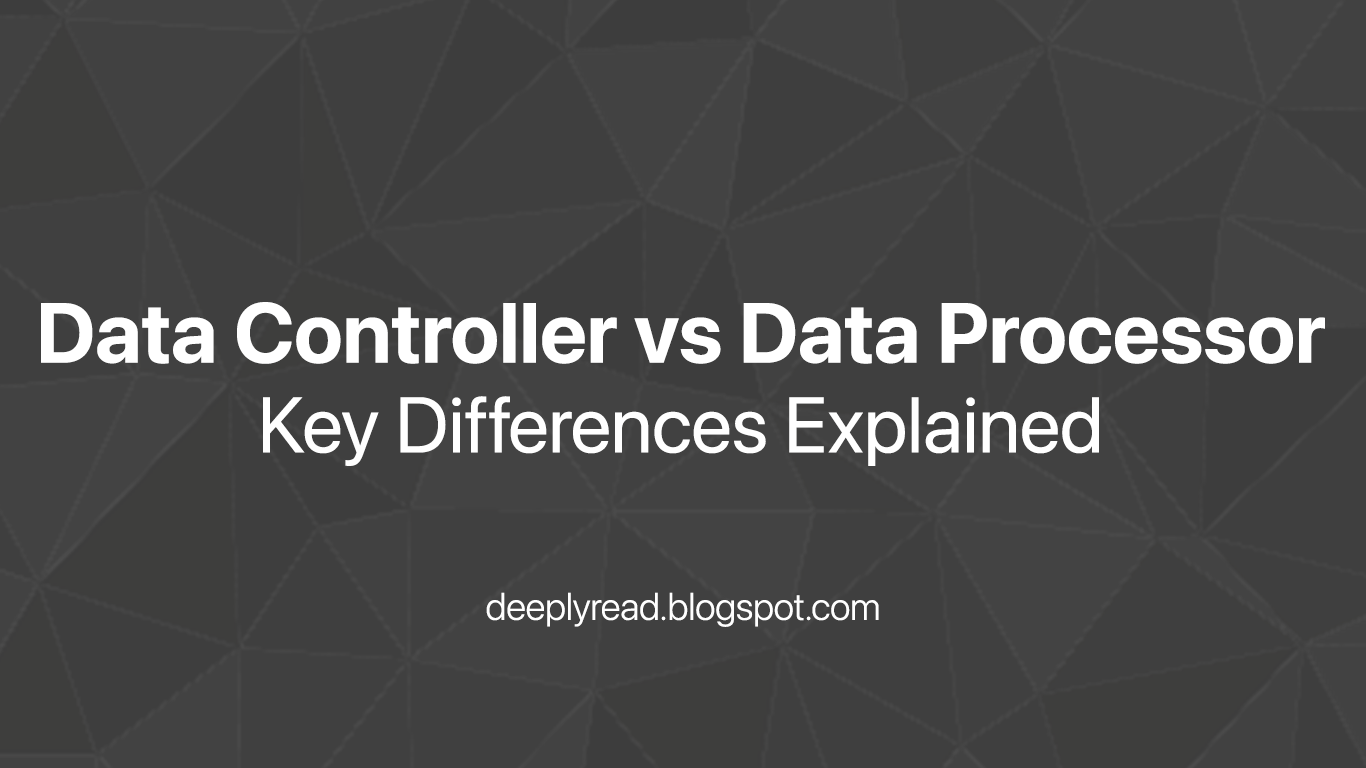In the context of data protection and privacy, it is important to understand the difference between a data controller and a data processor. Both terms are defined by the European Union's General Data Protection Regulation (GDPR), which sets the standards for data protection and privacy for individuals within the EU.

Data Controller
A data controller is an individual or organization that determines the purposes and means of processing personal data. The data controller is responsible for ensuring that data is processed in accordance with the GDPR and other relevant data protection laws. The data controller is also responsible for appointing a data protection officer (DPO) if necessary, and for ensuring that data subjects are informed about the processing of their personal data.
Data Processor
A data processor is an individual or organization that processes personal data on behalf of the data controller. The data processor must only process data in accordance with the instructions of the data controller, and must ensure that appropriate technical and organizational measures are in place to protect the personal data it processes.
Key Differences
The key differences between a data controller and a data processor are:
- A data controller determines the purposes and means of processing personal data, while a data processor processes personal data on behalf of the data controller.
- A data controller is responsible for ensuring that data is processed in accordance with the GDPR and other relevant data protection laws, while a data processor is responsible for processing data in accordance with the instructions of the data controller.
- A data controller is responsible for appointing a data protection officer (DPO) if necessary, while a data processor does not have this responsibility.
Conclusion
In summary, it is important to understand the difference between a data controller and a data processor in order to ensure compliance with data protection and privacy laws. The data controller is responsible for determining the purposes and means of processing personal data, while the data processor is responsible for processing personal data in accordance with the instructions of the data controller. Both have important roles to play in ensuring that personal data is processed in a safe and secure manner.